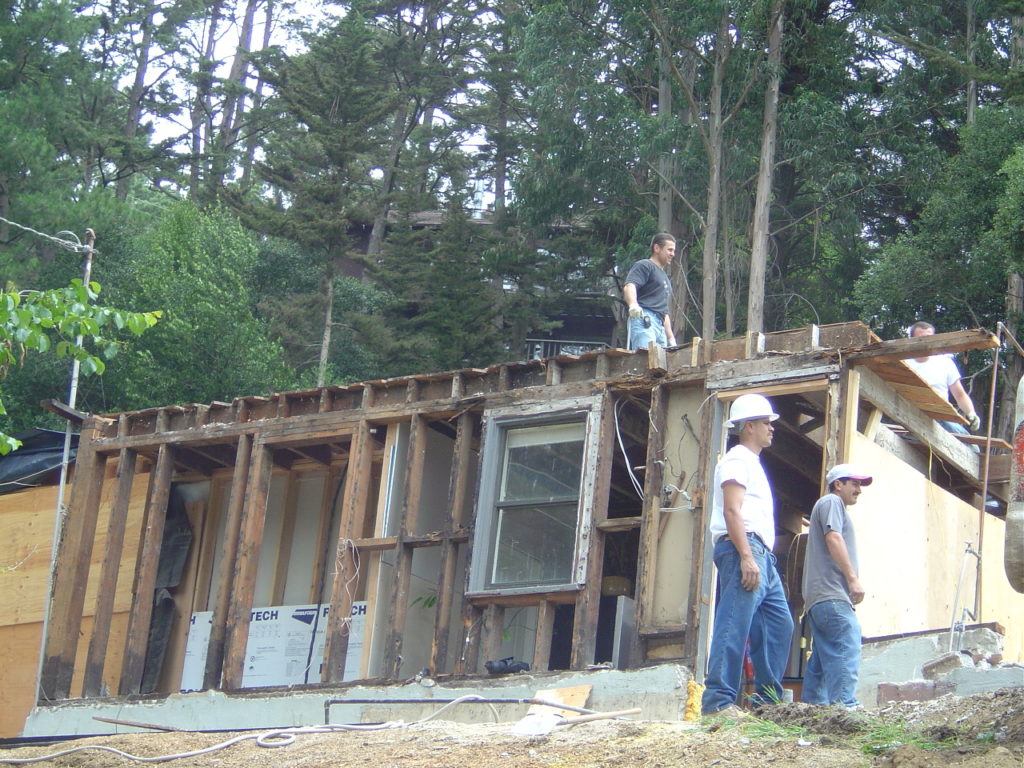
Homeowners should still get bids from multiple contractors when seeking repair work following a natural disaster. Photo: Advance Construction ©2019
Finding a quality contractor to work on your home can be challenging, but after a natural disaster, it’s even more complicated. With more homeowners needing urgent repair work, contractors are quickly overloaded with requests and opportunities for less-than-honest dealings abound.
Homeowners in the Bay Area are exposed to a range of natural disasters, including earthquakes, mudslides and, most recently, wildfires. Thankfully, the state has some regulations in place to protect homeowners after such events. If you’re navigating these circumstances, it’s essential that you understand your rights and also have realistic expectations.
Here are 10 tips for hiring contractors after a natural disaster:
- Obtain multiple bids if possible. Getting multiple bids is a great way to ensure you’re making an informed choice. However, you should assume that contractors will be receiving hundreds of calls per day. Expect delays but don’t give up.
- If you change your mind about proceeding with your contract, you normally have three days to rescind it in writing. If your area has been declared a disaster area, the Three-Day Right of Rescission extends to seven days. Upon rescission, the contractor must return your deposit.
- By law, anyone who undertakes to improve your home or property must have a contractor’s license if the cost of the project from start to completion will exceed $500. You can check a contractor’s license here. When you search by license number, you’ll be taken to the contractor’s license page.
- Check to see if the license is active and valid.
- The name of the license must match the name of the contractor or contracting firm using that license. It’s illegal to contract for home improvement projects using someone else’s license.
- The license page will also provide information about whether the contractor carries workers’ compensation insurance. Make sure to check this before allowing employees to work on your property.
- The State of California requires all home improvement contracts to contain certain information to communicate the rights and obligations of both sides of the transaction. If your contract is over $750, it should be several pages long in order to accommodate all of the required language.
- Your contract should provide sufficient details to leave no doubt as to what materials will be installed. For fencing, some details pertain to lumber species and grade. One measure of grade includes the frequency or appearance of knots or holes. Siding and roofing contract details may include product brand names and colors.
- Typically, the warranty on labor is one year. Manufacturers’ warranties can be longer depending on the product. Roofing shingles can sometimes carry a lifetime warranty. Either way, be sure to have the respective warranties in writing.
- Having a start and end date is a very nice thing to have on a contract. It may not be volunteered, but you can ask for it to be added.
- The deposit on any home improvement project should never exceed 10% of the contract price or $1,000 (whichever is less). Payment should never be in advance of actual work performed. If the job has been completed and there are a few things you’d like corrected, write up a “punch list” and, if necessary, withhold 10% of the final payment until the punch list is complete.
- All roofing contractors in California are required to carry workers’ compensation insurance, even if they don’t have employees. All other contractors (siding, fencing, etc.) are required to carry it if they have employees. Workers’ compensation insurance protects you in the event that a worker is injured on your property while on the job.
- After a major weather event, contractors are extremely busy. They may not be able to schedule your estimate for weeks or start working for months. This is where having a start and end date on the contract can be very anchoring and useful.
